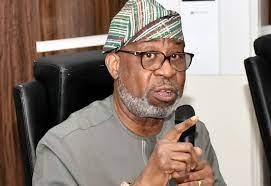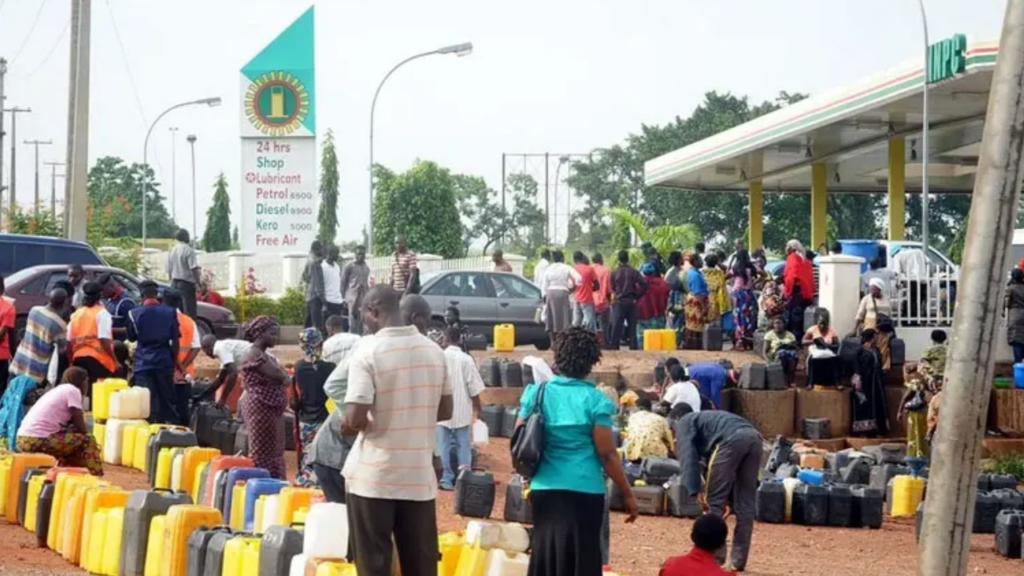Solid Minerals
Guinea and Rio Tinto Seal $20 Billion Mine Deal

LONDON – A landmark agreement on Monday has brought an end to three years of contractual wrangling over how best to develop Africa’s biggest mining project, a $20 billion iron-ore deposit nestled in the remote forests of Guinea.
But even though Monday’s deal resolves years of contractual uncertainty, it sets a new challenge: Finding deep-pocketed investors willing to spend tens of billions of dollars building the railroad and port needed to make the huge deposit economically viable.
For months, Rio Tinto and its partners Aluminum Corp. of China Ltd. , or Chalco, and the International Finance Corp., the private-sector arm of the World Bank, have been in talks with President Alpha Condé’s reformist government to figure out a way for the Simandou mine to be financed and executed.
Rio Tinto currently holds a license to mine around half of the deposit, around $10 billion worth of iron ore at current prices. The infrastructure and mining project will cost an estimated $20 billion to build, of which two-thirds is infrastructure costs.
Part of the new plan unveiled on Monday is to create a new consortium to fund and manage the construction of a 650 kilometer railway from the mine to Guinea’s Atlantic coast, as well as building a deep-water port to ship the iron ore to China and Europe.
Rio Tinto and its partners will now pitch this idea to potential financiers. Investors will be offered decades of steady yields, generated through tariffs charged on goods transported by rail, all the while helping one of the world’s poorest countries transform its economy.
“We are already in serious talks with around 30 different institutions,” said the person, who wasn’t authorized to speak publicly on the matter.
Sovereign-wealth funds, private equity, iron-ore customers and export credit agencies are among those who have been approached, said the person, though they declined to specific which ones.
In a phone interview, Guinea’s Mining Minister Kerfalla Yansané said U.S. giant General Electric GE 0.00% had already expressed an interest in participating in the new consortium.
GE couldn’t wasn’t immediately available for comment.
Concluding a financing deal could finally push the mine into production by early 2019, bringing in foreign investment and creating tens of thousands of jobs.
“This project is of critical importance for the people of Guinea. It’s a nationwide priority that goes beyond the mines and far beyond our generations,” said Mr. Condé.
By linking a publicly listed multinational with a Chinese state-owned company and a global development financing body, Monday’s deal breaks new ground in bringing together a disparate set of groups whose African interests don’t always converge.
“Today is an important milestone in the development of this world-class iron ore resource for the benefit of all shareholders and the people of Guinea,” said Rio Tinto Chief Executive Sam Walsh.
The pact, which will have to be ratified by parliament, consolidates a dizzying array of existing agreements signed with Mr. Condé’s predecessors. It also hands Guinea a significant share of the project, potentially growing to a 35% stake over the next 20 years.
Simandou has had a fraught history since Rio Tinto first secured exploration rights in 1997.
Already stymied by the lack of rail and port infrastructure, plans to turn it into a working mine have been further complicated by political upheavals, commodity-price volatility and contractual wrangling.
Mr. Condé, a veteran opposition leader elected in 2010 on a promise of securing fairer deals for Guinea’s mineral riches, has sought to promote an agenda of transparency and good governance. However, Guinea’s recent history contains enough examples of broken government promises to make some funders cautious.
The architects of the deal, senior executives at Rio Tinto and the IFC, say that was part of the reason they sought to conclude a clear and legally watertight framework agreement before raising the financing.
“This agreement is bankable, if it gets ratified by parliament. It’s a very solid framework. We haven’t had that yet. It enables us to have discussions with potential lenders,” said the executive at the IFC.
– WALLSTREET JOURNAL
Business
Nigeria set to boost Naira value and foreign reserve with local gold production, as Tinubu receives gold bar
IN a significant move to strengthen Nigeria’s economy, President Bola Tinubu received a symbolic gold bar on Sunday from the Minister of Solid Minerals Development, Dele Alake.
This gesture marks the commencement of the National Gold Purchase Program (NGPP), aimed at boosting the naira’s value and enhancing the country’s foreign reserves.
Minister Alake expressed gratitude to President Tinubu for his support of reforms in the solid minerals sector.
He highlighted that the NGPP, which involves sourcing gold from artisanal and small-scale miners and refining it to meet the London Bullion Market Association’s Good Delivery Standard, will substantially contribute to Nigeria’s economic stability.
Alake stated “This initiative will significantly increase our foreign reserves and strengthen the naira. The refined gold will be supplied to the Central Bank of Nigeria, marking a crucial step in our economic strategy.”
The presentation also underscored the first commercial transaction under the NGPP, establishing a centralized gold purchasing system that integrates small-scale miners, cooperatives, and production units across the nation.
This program is expected to provide a structured market for gold, fostering economic growth and stability.
He said, “The successful completion of the first commercial transaction clearly demonstrates the National Gold Purchase Program’s effectiveness. It has increased the nation’s foreign reserves assets and shown that using the Nigerian Naira to purchase a liquid asset traded in United States Dollars, such as gold, is a viable strategy. This transaction has also underscored the potential of the National Gold Purchase Program to enhance fiscal and monetary stability.”
Alake added that the initial commercial transaction under the program resulted in a +US$5 million boost in Nigeria’s foreign reserve assets.
The transaction involved refining over 70 kilograms of gold to meet the London Bullion Market quality standard and aggregating locally mined gold, thereby infusing approximately NGN6 billion into the rural economy.
President Tinubu expressed appreciation for the Ministry’s accomplishment in advancing the government’s goal of economic diversification by acknowledging and displaying the symbolic gold bar
Solid Minerals
FG Fingers Foreigners Sponsoring Banditry For Illegal Mining

The Nigerian Government has threatened to come down heavily on foreigners sponsoring bandictory as a way of sustaining illegal mining activities in parts of the country.
The warning was handed down in Abuja by Minister, Solid Minerals Development, Dr Oladele Alake, while receiving a delegation of the Nigeria-China Chamber of Mines led by its National President, Dr. Olugbenga Ajala.
Details of these were contained in a statement released by Head, Press & PR, Ministry of Solid Minerals Development, Alaba Balogun over the weekend.
The statement cited, Dr Alake, thus, “The government will come down firmly on these unscrupulous foreign operators sponsoring banditry to perpetrate illegal mining: let me use this medium to appeal through you to tell those sponsors to desist or face the full wrath of the law.”
According to Dr Alake, the Ministry is committed to establishing a multi-agency task force that will end the activities of illegal miners and their collaborators.
The Minster made it clear that the FG had given illegal miners a 30-day-ultimatum to legitimise their businesses, quit Nigeria or incur the wrath of the law.
According to him, this will help “to streamline and structure the Small-Scale Artisanal Miners for maximum yield to the Federal Government.”
The delegation paid a courtesy call on the Minsiter at the Ministry’s headquarters in Abuja.
Energy
Fuel Scarcity: Govt Yet to Increase Pump Prices – NMDPRA

By Edozie Obasi-Eze
Amidst heightening uncertainties in the domestic petroleum products market characterised by scarcity and irregular pricing, the Nigerian Midstream and Downstream Petroleum Regulatory Authority (NMDPRA) has declared that there’s no intention to review pump prices upwards.
This was contained in an advisory issued by General Manager, Corporate Communications, NMDPRA, Kimchi Apollo.
He stated that the Nigerian National Petroleum Corporation Limited (NNPCL) had imported PMS with current stock levels sufficient for 34 days.
In an attempt to address panic buying and speculations which have seen price of Premium Motor Spirit (PMS) oscillate between N180-N250 in the Lagos area, Apollo assured that there was enough quantity of the product in the country already.
He said, “Consequently, marketers and the general public are advised to avoid panic buying, diversion of products and hoarding.
“In keeping with the Authority’s responsibilities as outlined in the Petroleum Industry Act (PIA), the Authority assures the public that it would continue to monitor the supply and distribution of petroleum products nationwide, especially during this holiday season.”












